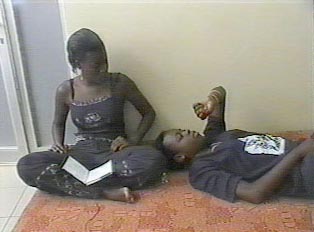LangMedia
French, Wolof in Senegal
Time

In Senegal, the 24-hour clock is used when time is officially written, and the 12-hour clock is used when time is spoken of. It is common for most operations to shut down in the middle of the day for lunch and a period of rest. Some schools are open from 8:00 a.m. – 1:00 p.m.; others have two shifts from 8:00 a.m. to 10:00 a.m. and 2:00 p.m. to 4:00 p.m. Businesses and banks have varying schedules. A typical schedule might be to open from 8:00 a.m. to 1:00 p.m., and again to open from 3:00 p.m. to anywhere from 6:00 p.m. to 8:00 p.m. Since government offices can sometimes be closed for a variety of reasons, it is best to call before going. Since Saturday is a busy day of shopping and taking care of business matters, it is not uncommon for shops to be open all day and for banks to be open at least in the morning.
Notions of punctuality in Senegal are not based on “punching the clock.” When one is invited to dinner at 6:00 p.m., it would be unheard of to show up any time before 8:00 and would be perfectly acceptable to arrive at 9:00 or later. As well, it is unthinkable that the person invited would rush in order to be on time. Rather, the priority is to enjoy both preparing to go and going. The importance lies in the fact that the guest attends, and what happens in the time that he or she is there. Friendship and courtesy are not measured in the practice of arriving at an appointed hour but in bringing oneself to the home to be a part of the social event. It is a common practice for the host to set the appointed time two hours before he or she expects people to arrive.
However, for business appointments and school, the culture shifts from traditional Senegalese values to French-influenced values. One is expected to be punctual for all such engagements.
Videos
-
"What Time Is It? (Formal)"Transcript document:
-
"What Time Is It? (Informal)"Transcript document:
-
"What Time Is It? 1"Transcript document:
-
"What Time Is It? 2"Transcript document:
-
"What Time Is It? 3"Transcript document:
